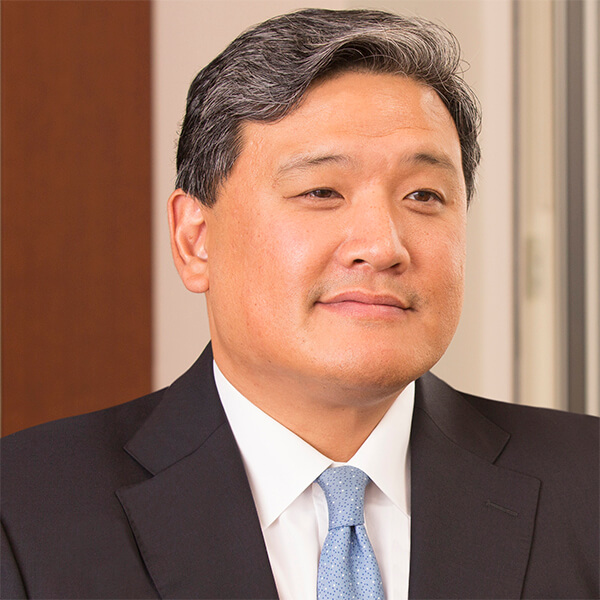Capital IdeasTM
Investment insights from Capital Group
China
- Despite a slowing economy and tighter regulatory environment, China remains a key investment destination due to the attraction of its enormous domestic market.
- While our exposure across China has narrowed over the past 18 months, attractive opportunities remain within those domestic-oriented companies that are aligned with the country’s policy priorities.
- As an investor, we are prepared for more volatility in China and are planning to be more selective about gauging the risk premium for industries and companies.
It’s important to state up front that we don’t believe China is “un-investible” as some have posited following the government’s recent efforts to reform parts of the private-sector economy. It’s also not a geopolitical pariah like Russia, which is a tiny constituent of the global indexes and economy.
China’s key attraction is its enormous domestic market. But as the world’s second-largest economy, China is deeply interconnected with the global economy in manufacturing supply chains and is increasingly a large portion of multinational corporate revenues. Understanding and navigating the complexities of China has important implications for both domestic and international investing in understanding the development of its capital markets longer term.
The framework for investing in China has changed significantly over the past year due to micro, macro, regulatory and geopolitical factors. China is still investible, but at the right price in the right sectors. And the kinds of companies that might be future potential sources of solid returns could be quite different than in the past decade.
With that backdrop in mind, here is how we are thinking about investing in China today.
The risk premium is higher
We’ve been significantly reassessing the risk premium applied to China, given slower economic growth, the rising demographic headwinds and the potential for further regulatory measures. The country is going through a structural change during a cyclical downturn, and it could take some time to fully understand the impact of the government’s common prosperity agenda for the economy and President Xi Jinping’s priorities if he secures a third term.
So, what do we know? From our perspective, China’s problems are fairly apparent: among them, an aging population, significant debt at state-owned enterprises and local governments, pollution, wealth disparity and inefficient allocation of capital. The property sector and its current downturn are of particular concern.
Xi is trying to fix many of these critical problems with reforms and regulations. And since China’s two-term limit on the presidency was removed in 2018, Xi is widely expected to be elected for a third term at the 20th Party Congress in late 2022, giving him more time to implement his agenda and shape China for decades to come.
Explosive growth has transformed China over 40 years
.png)
*Data for number of private enterprises as at 1988 and 2018. Sources: Capital Group, CEIC, International Monetary Fund, The World Bank
For now, it means companies with excessively high profit margins may come under scrutiny, similar to what happened in the for-profit education and technology-related sectors. It also means incorporating a much more layered and complex analysis of equity securities from a fundamental perspective and through a policy lens to see where it fits in Beijing’s development agenda. An example would be companies that are beneficiaries aligned with Xi’s mandate to source locally and develop internal domestic supply chains.
It further means applying a higher risk premium to Chinese equities with comparable businesses to listed stocks in other countries that don’t have the same political risks. Emerging internet platform companies in Southeast Asia and Latin America are an example.
Over the past 18 months, we’ve become more selective and have narrowed exposure in China. Holdings have become increasingly concentrated in fewer larger positions and in companies run by private entrepreneurs, where there remains potential for secular growth with some political tailwinds.
And we’ve become more valuation sensitive and focused on capital allocation. This has meant a reduction in technology holdings and China exposure overall. As the chart shows, the market value of China’s technology companies have tumbled since early 2021, not long after China’s regulators postponed the initial public offering of Alibaba affiliate Ant Financial.
Value of China’s technology giants has diminished on regulatory uncertainties
.png)
The five companies included represent the five largest Chinese technology companies (Tencent, Alibaba, JD.com, Baidu and NetEase) by market value as at 28 February 2022, that were also publicly listed in 2015. All stocks, except Tencent, reflect their American Depository Receipts. Sources: Capital Group, MSCI, RIMES
Risk factors you should consider before investing:
- This material is not intended to provide investment advice or be considered a personal recommendation.
- The value of investments and income from them can go down as well as up and you may lose some or all of your initial investment.
- Past results are not a guide to future results.
- If the currency in which you invest strengthens against the currency in which the underlying investments of the fund are made, the value of your investment will decrease. Currency hedging seeks to limit this, but there is no guarantee that hedging will be totally successful.
- Depending on the strategy, risks may be associated with investing in fixed income, emerging markets and/or high-yield securities; emerging markets are volatile and may suffer from liquidity problems.
Our latest insights
-
-
Long-Term Investing
-
Fixed Income
-
-
Economic Indicators
RELATED INSIGHTS
-
Markets & Economy
-
U.S. Equities
-
Artificial Intelligence
Past results are not predictive of results in future periods. It is not possible to invest directly in an index, which is unmanaged. The value of investments and income from them can go down as well as up and you may lose some or all of your initial investment. This information is not intended to provide investment, tax or other advice, or to be a solicitation to buy or sell any securities.
Statements attributed to an individual represent the opinions of that individual as of the date published and do not necessarily reflect the opinions of Capital Group or its affiliates. All information is as at the date indicated unless otherwise stated. Some information may have been obtained from third parties, and as such the reliability of that information is not guaranteed.
Capital Group manages equity assets through three investment groups. These groups make investment and proxy voting decisions independently. Fixed income investment professionals provide fixed income research and investment management across the Capital organisation; however, for securities with equity characteristics, they act solely on behalf of one of the three equity investment groups.
 Chris Thomsen
Chris Thomsen
 Kent Chan
Kent Chan